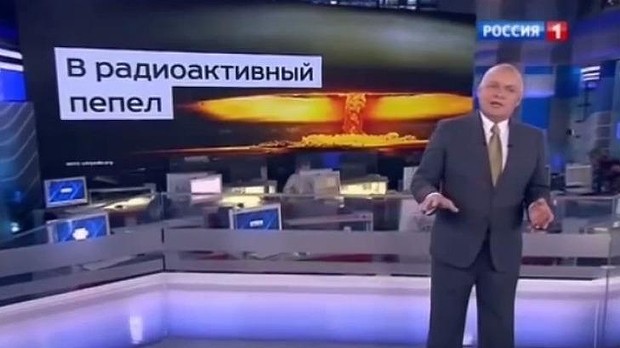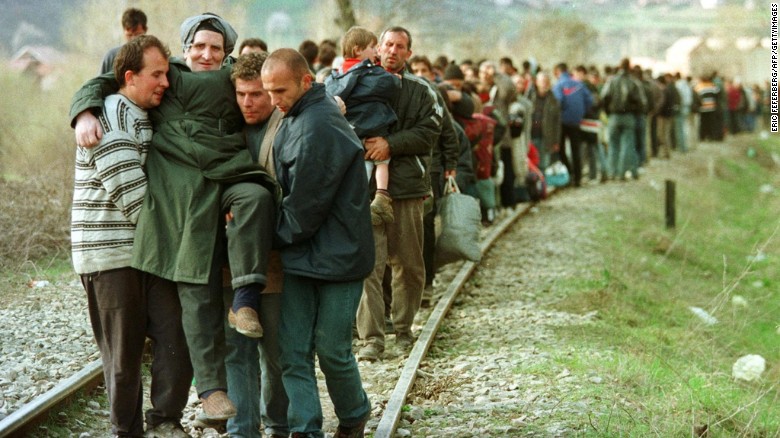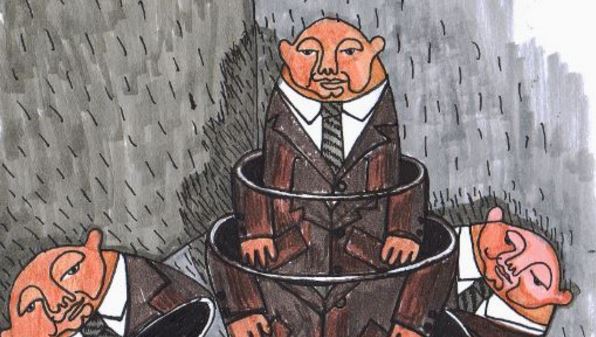It's no secret that Russia's international broadcasting service is trying with all its might to conquer the global media market. Last week, «Russia Today», the flagship of the Russian state propaganda, entered the UK airwaves and opened its own studio in London.
This week was also marked by a new step in the evolution of the Russian information machine - the International Information Agency "Russia Today" (RT) has decided to launch a new Internet project under the working title "Sputnik".
RT's Director General Dmitry Kiselev is trying to keep this a secret, since spending hundreds of millions of dollars on propaganda while Russia's domestic economy has fallen is no joke.
It became known that on 29 May 2014 RT has registered two new media entities called "Sputnik" in Roscomnadzor (Russian federal communications regulator): a radio channel and an information agency. It is expected that a separate news agency will be created under this brand, one that is exclusively focused on foreign audiences.
As reported, the "Sputnik" Radio Station will broadcast in the format of an Internet radio in 45 languages. Its highest priority will be targeting the United States, Canada, Western Europe, China, India, Latin America, Japan, and Middle East countries. It is expected that the new Internet radio station will use the IT resources of the unsuccessful "Voice of Russia" media company. And over time, "Voice of Russia" media company will become a part of the "Sputnik" information agency.
"Sputnik" information agency is likely to be an interactive news platform, which will combine a news feed, discussions and analytic materials. It will operate communication lines: SMS texting service, e-mail and video conferencing. "Sputnik" will give users an opportunity to create their own blogs and keep them in the discussion of events. At the same time, access to other resources MIA "Russia Today" will be simplified by clicking a specific icon.
The main objective of "Sputnik" is to keep the Internet user inside its own information field. More than a hundred of programmers, web-designers, marketing and public relations specialists have already started working to accomplish this.
Russia began to diversify its media-propaganda stream to amplify the influence of Russia on foreign audiences. Given the negative sentiment foreigners against Moscow, it will create a domestic field for accusations against the Kremlin leadership for an improper expenditure of budgetary funds, or simply another round of stealing. Considering the falling economy, the "sagging" ruble, and the broken social support net, it is considered to be--at a minimum--frivolous to waste hundreds of millions of dollars on another propaganda project.
Information about how much this project will cost the Russian budget is almost non-existent.
It is known that the annual funding for RT amounted to $350m a year. But, according to unofficial data, in 2014, to increase media impact on Ukraine and the West, RT received about $500m (for comparison, the annual budget of the "Voice of America" - is just $13m).
According to official data from Russian media, for 2015, RT will receive funding that is 2.5 times higher compared to previous years. RT's TV channel will increase its expenses by 41%-45%, but the unofficial figure for 2015 is $725m.
In addition, the financing and development of the "Sputnik" international news agency is estimated to be no less than $75m per year.
It is necessary to emphasize the fact that for 2015 Russia once again cut its health and education budget by 20-30%. In addition, in 2015 the Russian government cut its "Crimea aid" by almost four times.
But in the end it turns out that the Russian authorities, while hurting Russian people in getting a quality education, health and social support net are spending money on the information war that no one needs.
Article by Vyacheslav Gusarov, expert of the Center of military-political research group "Information Resistance"





